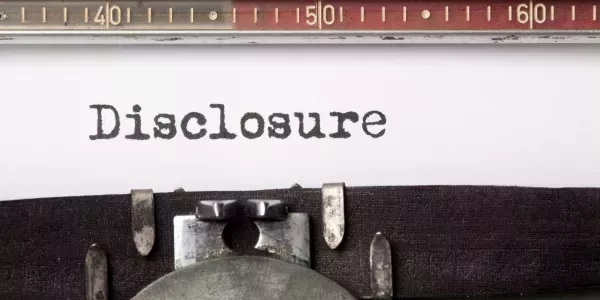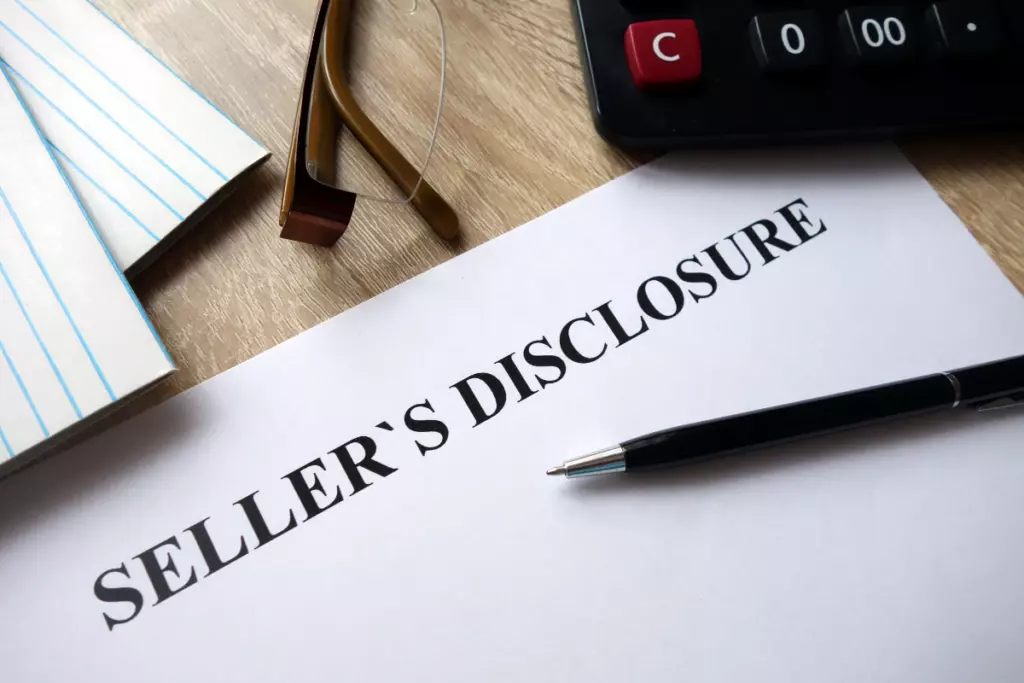Before taking the huge step of buying a home, you will want to know everything about the property. You will want to get information about both its structural and legal conditions. Disclosure was created to ensure that you are informed about everything you want and need to know about the house before closing the deal. In this article we will talk about disclosure, focusing on seller’s disclosure and what to expect from it.
What is a disclosure?
Generally speaking, a disclosure is the legal obligation of the seller to inform a potential buyer of the condition and history of a property. There are several types of disclosures, the most common of which is the seller’s disclosure.
What is a seller’s disclosure?
Seller’s disclosure is the legal obligation that a seller has to disclose information about the property in question. This document typically includes information about the property's condition, any known issues, repairs, renovations, and other important facts that may impact the buyer's decision.
It’s worth noting that seller disclosure laws may vary from state to state, but most require some kind of seller’s disclosure statement. The purpose of disclosure is to make the transaction as transparent as possible.
What does it mean if there is no seller's disclosure?
If there is no seller’s disclosure, it should raise some red flags for the potential buyer. When this happens the process it’s called a “no-sellers disclosure sale” and it indicates that the seller is not being totally honest about the property's condition and history which could affect the buyer's final decision.
The absence of a disclosure doesn't necessarily mean there are hidden problems. In certain cases there is no need for a disclosure. For example, if the property is a gift or if it is being transferred between relatives a disclosure is not always required. But if you are a homebuyer you want to be more cautious and conduct additional inspections and due diligence.
Is seller’s disclosure mandatory?
It will depend on your location, since seller’s disclosure requirements vary from one state to state. That said, almost all states in the US require sellers to provide a disclosure statement. There are different requirements in each state, meaning that details about what needs to be disclosed are specific to each state.
Some disclosures, like the presence of asbestos or lead paint, are mandated by federal law. To find out the specific disclosure laws in your state, check the local laws and regulations in your area.
What does it mean to get a disclosure?
Getting a disclosure means that the buyer will receive a document from the seller, which provides important information about the property. This information can influence the buyer's final decision.
It showcases the seller’s willingness to be transparent about the property's condition and any known problems. As a buyer, you need to carefully review the disclosure to gain insights into the property's history and potential challenges.
What does disclosure mean in legal terms?

In purely legal terms, disclosure is when both parties involved in the litigation are obligated to provide each other with all information they have collected regarding the case. In real estate, as has been mentioned above, disclosure refers to a formal statement or document that reveals information about a property.
This stage usually occurs after the seller and the buyer have made their initial statement in their process. If the seller fails to provide accurate information in the disclosure it can lead to legal consequences.
What are disclosure documents?
The concept of disclosure is not specific to real estate. As we have seen above, disclosures are used in law, as well as in other areas where contracts are involved. Disclosure documents or prospectuses are provided so that both parties are able to make informed decisions about a transaction.
This document ensures that both parties understand the rights, risks, and obligations associated with investing in a specific deal. It basically is the written records that contain information about the transaction in question. In the case of real estate, the transaction is property. Here is an overview of disclosure documents:
| Both parties information | All the information necessary about the investors and startups, like name and address. |
| Property Condition | Details about the property’s condition. |
| Environmental Issues | Information about environmental hazards |
| Legal Matters | Disclosure of any pending lawsuits or zoning issues that can affect the property. |
| History of Repairs | Records of past repairs, maintenance, or upgrades made to the property. |
| Property History | Information about the property's history, including previous owners and any significant events. |
What Should A Seller’s Disclosure Include?
It depends on your location, since specific requirements vary from state to state, but there is one federal law requiring sellers to disclose lead-based paint hazards in houses built before 1978. Here are a few more common data shared in disclosures:
- List of specific issues in the house.
- Questions about the property where the seller must answer with “Yes,” “No” or “Unknown”.
- Space in the document to provide additional disclosures and to provide further explanation of the issue, such as in the case where an issue has been fixed.
- History of the house and all information that might be significant.
What Is The Caveat Emptor Rule?
Caveat emptor rule puts the liability on the buyer to learn more about the home and anything that may affect its quality or sustainability. Some states may require a caveat emptor instead of required disclosures or a Seller’s Disclosure form. It is also known as “buyer beware”.

 Marcio Vasconcelos
Marcio Vasconcelos





